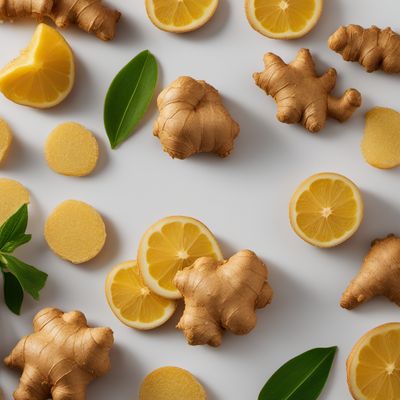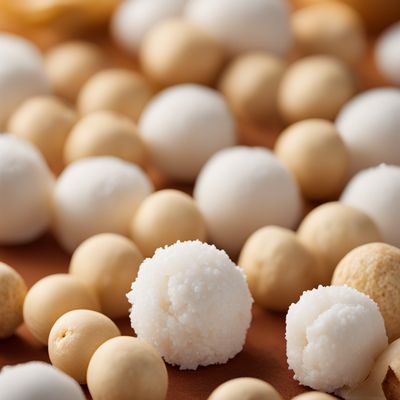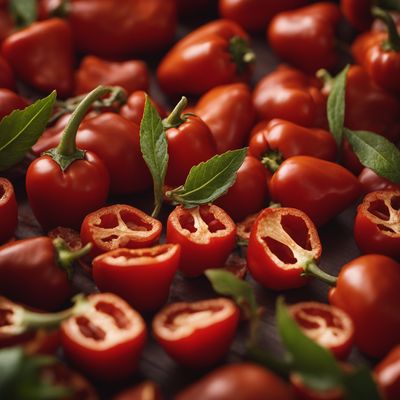
Ingredient
Sour flavour
The Tangy Twist: Unveiling the Secrets of Sour Flavour
Sour flavour is characterized by its acidic taste, which stimulates the taste buds and creates a mouthwatering sensation. It adds brightness and depth to dishes, balancing out other flavors. The intensity of sourness can vary, ranging from subtle hints to bold and puckering sensations. Sour ingredients can have a liquid or solid form, and their appearance can range from clear liquids to vibrant fruits or fermented products. The texture of sour ingredients can vary depending on their form, from smooth liquids to crunchy pickled vegetables.
Origins and history
Sour flavors have been a part of culinary traditions worldwide for centuries. Fermentation, a process that naturally produces sourness, has been used since ancient times to preserve food and enhance its flavor. Cultures around the world have developed unique sour ingredients, such as vinegar, citrus fruits, tamarind, yogurt, and fermented vegetables. These ingredients have played significant roles in various cuisines, from Asian dishes like kimchi and sushi to European classics like sauerkraut and vinaigrettes.
Nutritional information
Sour ingredients often contain essential vitamins, such as vitamin C, and can provide a refreshing burst of flavor with minimal calories.
Allergens
Sour flavor itself is not associated with any known allergens, but specific sour ingredients may have allergenic properties. It is important to check for allergen information on product labels.
How to select
When selecting sour ingredients, look for freshness and quality. For citrus fruits, choose ones that are firm, heavy for their size, and have smooth skin. For vinegar, opt for high-quality brands with clear and vibrant colors. When selecting fermented products, such as pickles or sauerkraut, ensure they are properly sealed and have no signs of spoilage.
Storage recommendations
To maintain the freshness and quality of sour ingredients, store citrus fruits in a cool, dry place or in the refrigerator. Vinegar should be stored in a cool, dark place, away from direct sunlight. Fermented products should be kept refrigerated and sealed tightly to prevent spoilage.
How to produce
Sour flavor can be produced at home through fermentation processes. For example, making homemade pickles involves fermenting vegetables in a brine solution, while making yogurt involves fermenting milk with specific cultures.
Preparation tips
Sour ingredients can be used in various ways. Citrus fruits can be juiced, zested, or sliced to add a tangy twist to salads, marinades, or desserts. Vinegar can be used in dressings, sauces, or pickling brines. Fermented products can be enjoyed as condiments, toppings, or incorporated into dishes for added flavor and probiotic benefits.
Culinary uses
Sour flavor is widely used in a variety of dishes and cuisines. It can be used to balance the richness of fatty or sweet ingredients, add brightness to sauces and dressings, or provide a refreshing element to beverages and desserts.
Availability
Sour ingredients like citrus fruits and vinegar are commonly available in grocery stores worldwide. Fermented products may vary in availability depending on the region and cultural preferences.
More ingredients from this category » Browse all

Chili flavour
The Fiery Essence

Ginger flavour
The Zing of Ginger

Raffaello flavour
The Delicate Bliss: Raffaello Flavour

Rum-raisin flavour
The Irresistible Essence of Rum-Raisin

Fish flavour
"The Ocean's Symphony: Exploring the Delicate and Savory Fish Flavour"

Tandoori flavour
The Fiery Essence of Indian Cuisine

Almond flavour
"The Nutty Elixir: Exploring the Delicate Allure of Almond Flavour"

Paprika flavour
The Fiery Essence of Paprika

Brandy orange flavour
The Essence of Citrus Elegance

Fruit flavour
The Essence of Nature's Sweetness: Exploring the World of Fruit Flavour

Mastic gum flavour
The Essence of Mastic

Ketchup flavour
Tangy Tomato Twist: Exploring the World of Ketchup Flavour